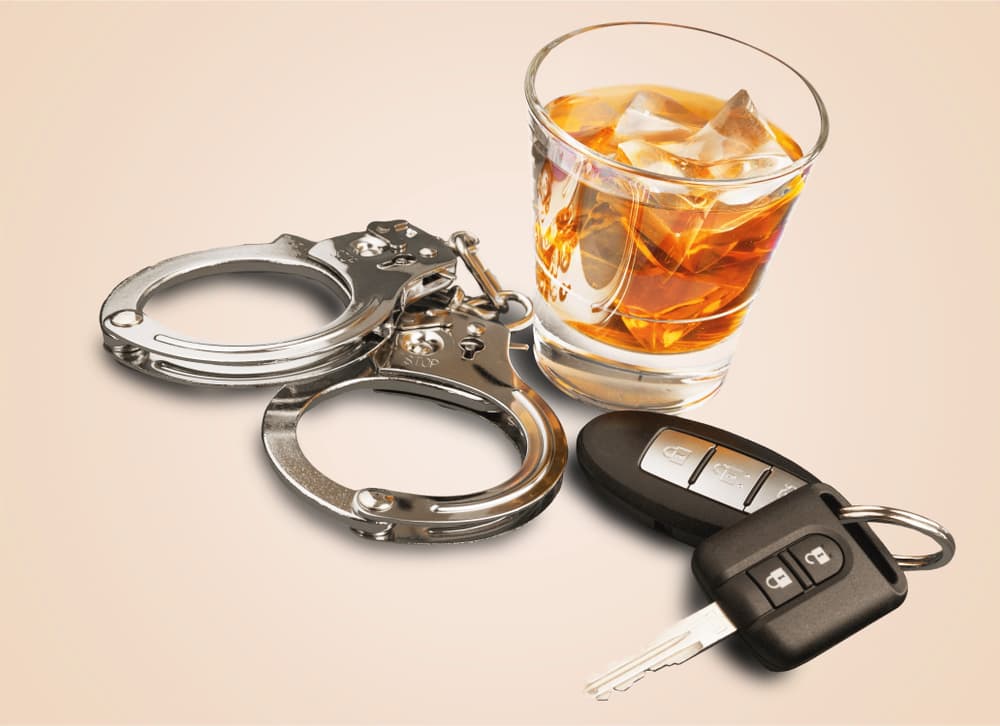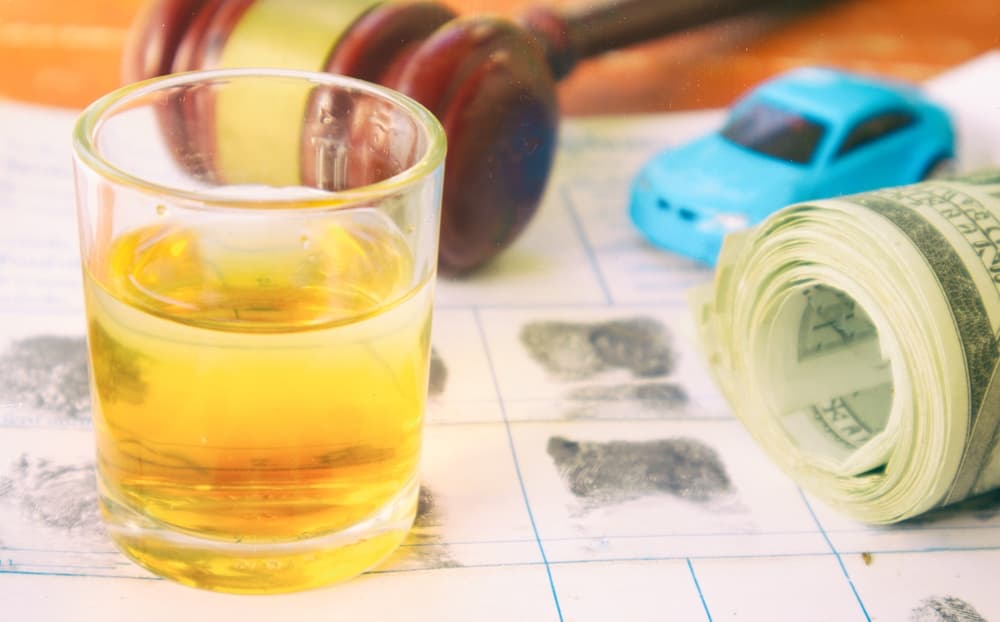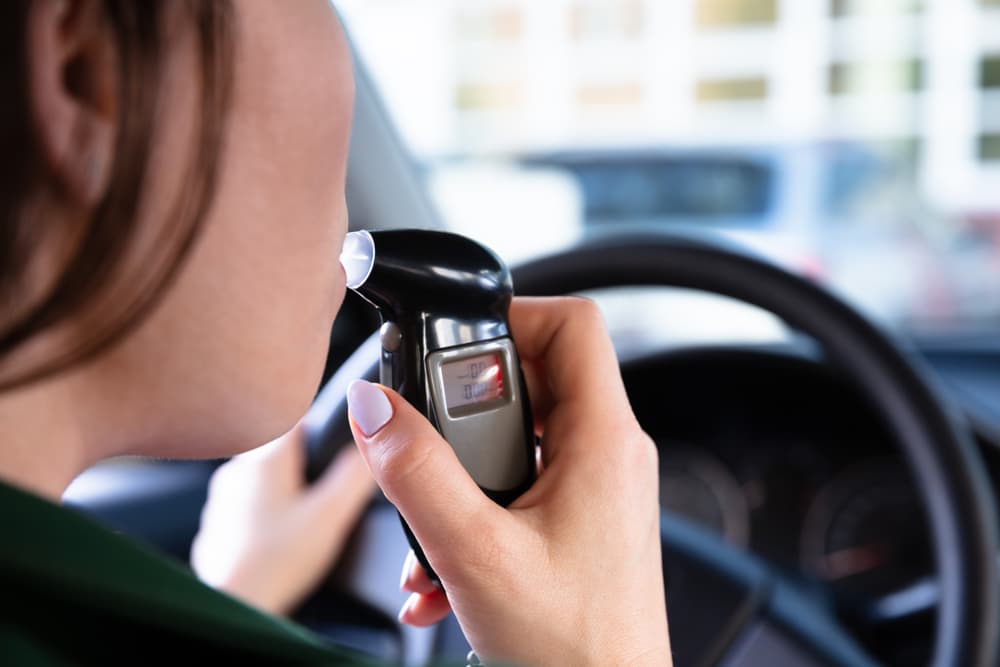A DUI, or Driving Under the Influence, is a criminal offense that occurs when an individual operates a vehicle while impaired by alcohol or drugs. Each state has legal limits for blood alcohol concentration (BAC), typically set at 0.08 percent for drivers who are twenty-one and over. A DUI conviction can result in severe penalties, including fines, license suspension, and even jail time.
In many instances, state prosecutors rely on blood or breath tests to secure a conviction in a DUI case. However, these tests are sometimes faulty, and demonstrating a defective test result can sometimes lead to a complete dismissal of a DUI case.
If you are currently facing a DUI charge, a knowledgeable DUI defense lawyer in your area can meet with you to discuss the circumstances, determine your options, and pursue the best possible result for your case and circumstances.
Elements of a DUI Charge

To convict someone of DUI, a state prosecutor must prove several key elements beyond a reasonable doubt. These elements vary slightly by state, but they generally include the following:
- Driving or Operating a Vehicle – The prosecutor must demonstrate that the accused (defendant) was driving or in physical control of a vehicle, which means that the person was not only present in the vehicle but also had the capability to operate it. This criteria can include situations where a person is found behind the wheel with the engine running, even if they were not actively driving the vehicle.
- Intoxication or Impairment – The core element of a DUI charge is proving that the defendant was under the influence of alcohol or drugs at the time of driving. This proof can be established through various methods, such as breathalyzer tests, blood tests, or field sobriety tests. The legal limit for BAC is typically set at 0.08 percent for drivers over twenty-one. If the defendant’s BAC is at or above this limit, it provides strong evidence of intoxication. However, a prosecutor can also argue impairment even if the BAC is below the legal limit, using evidence of the driver’s behavior, physical appearance, and performance on sobriety tests.
- Mental or Physical Impairment – Beyond just proving intoxication, the prosecutor must show that the defendant’s ability to drive was negatively affected. This condition can include diminished coordination, inability to focus, or other behaviors indicating that the defendant was not fit to drive safely. Observations made by law enforcement officers at the time of the stop can be critical here.
- Time of Offense – The prosecutor must establish that the driving occurred at a time when the defendant was impaired, which often involves gathering evidence from the arresting officer’s report, witness statements, or video footage from the traffic stop.
- Jurisdiction – Finally, the prosecutor must prove that the alleged offense occurred within the jurisdiction of the court where the case is being heard. This proof requires demonstrating that the incident took place in the state or area where the prosecution is taking place.
By establishing these elements, the prosecution aims to convince the jury or judge that the defendant committed the crime of DUI. Each element is crucial for securing a conviction.
Most Common Types of Breath and Blood Tests in DUI Cases
In a DUI case, prosecutors often rely on breath and blood tests to establish whether a driver was under the influence of alcohol or drugs. These tests are essential for gathering evidence and can significantly influence the outcome of a case.
Breath Tests
- Breathalyzer Tests – One of the most common methods used by law enforcement is the breathalyzer test. This device measures a person’s BAC by analyzing the alcohol content in their breath. When a person exhales into the device, it calculates the BAC based on the ratio of alcohol in the breath compared to blood. A BAC of 0.08 percent or higher is typically considered evidence of intoxication for drivers over twenty-one.
- Portable Breath Test (PBT) – Officers may also use portable breath testing devices at the scene of a traffic stop. These handheld devices provide a preliminary BAC estimate before a more accurate test is administered at the station. While the results from PBTs can be indicative, they are not usually admissible in court as definitive proof of DUI.
Blood Tests
- Blood Alcohol Concentration (BAC) Tests – Blood tests are another common method used to determine a person’s BAC. These tests involve drawing a sample of the driver’s blood, which is then sent to a laboratory for analysis. Blood tests can measure the exact amount of alcohol or drugs in a person’s system, providing more precise results than breath tests. A BAC of 0.08 percent or above can serve as a strong basis for a DUI charge.
- Drug Testing – Blood tests are also utilized to identify the presence of drugs, including prescription medications and illegal substances. This testing can reveal not only the type of drug but also its concentration, helping prosecutors establish whether the driver was impaired due to drug use.
Implications in Court
The results of these tests play a crucial role in DUI prosecutions. High BAC levels or the presence of drugs in the blood can significantly bolster the prosecution’s case. Law enforcement officers are trained to administer these tests correctly and to document the results accurately, ensuring that the evidence collected is reliable.
Ultimately, breath and blood tests are vital tools in DUI cases, helping prosecutors demonstrate that a driver was operating a vehicle while impaired, thus seeking a conviction based on concrete scientific evidence.
Potential Penalties for a DUI Conviction
A DUI conviction can lead to severe penalties and collateral consequences that extend beyond the immediate legal repercussions.

Legal Penalties
- Fines and Fees – One of the most common penalties for a DUI conviction is substantial fines. These fines can range from hundreds to thousands of dollars, depending on the jurisdiction and whether it is a first or repeat offense. In addition to fines, court fees and administrative costs can add to the financial burden.
- License Suspension – Most states impose a license suspension following a DUI conviction. The duration can vary, but it often lasts several months to years, depending on prior offenses and the severity of the incident. Driving without a valid license during this suspension can lead to further penalties.
- Jail Time – Depending on the state’s laws and the specifics of the case, a DUI conviction may result in jail time. First-time offenders may face short sentences, while repeat offenders or those involved in accidents can receive longer sentences. Some jurisdictions may offer alternatives like probation or community service.
- Mandatory Alcohol Education Programs – Courts often require DUI offenders to complete alcohol or substance abuse education programs. These programs aim to educate individuals about the dangers of impaired driving and may involve fees and time commitments.
Collateral Consequences
- Employment Challenges – A DUI conviction can significantly affect employment opportunities. Many employers conduct background checks, and a DUI on your record can be a red flag, particularly in jobs that involve driving or operating heavy machinery.
- Insurance Issues – Following a DUI conviction, car insurance rates typically increase, and in some cases, insurers may refuse to renew your policy, which can result in higher premiums for years, creating ongoing financial strain.
- Social Stigma – The social stigma associated with a DUI conviction can affect personal relationships and community standing. Friends, family, and colleagues may view a DUI conviction negatively, leading to potential isolation or judgment.
- Consequences for Travel – A DUI conviction can complicate international travel. Some countries may deny entry to individuals with a DUI record, limiting travel opportunities.
Ways of Challenging a Breath or Blood Test

Challenging the results of blood or breath tests in a DUI case can be a crucial part of your defense strategy. Here are some common ways you can contest these test results:
- Questioning the Testing Procedure – Both breath and blood tests have specific protocols that must be followed to ensure accurate results. If law enforcement does not adhere to these procedures, it may weaken the test’s validity. For example, breathalyzer tests require calibration and maintenance. If the device was not properly maintained or calibrated before your test, you can argue that the results are unreliable.
- Challenging the Administration of the Test – The way the test was administered can also be scrutinized. A trained officer should conduct breath tests, and if the officer lacked proper training or made mistakes during the process, you may challenge the results. For blood tests, any errors in collecting or handling the sample, such as improper sterilization or chain of custody issues, can be grounds for contesting the results.
- Examining the Accuracy of the Equipment – The reliability of the testing equipment itself is critical. Breathalyzers can produce false positives due to various factors, such as the presence of mouth alcohol from recent drinking or substances like mouthwash. Demonstrating that external factors may have influenced the test results can significantly undermine the prosecution’s case.
- Reviewing the Medical Conditions – Certain medical conditions can affect breath or blood test results. For instance, individuals with diabetes or acid reflux may have elevated breath alcohol levels without consuming alcohol. Providing evidence that a medical condition may have influenced the test results can support your defense.
- Challenging the Testing Timing – The timing of the test in relation to your arrest can also be significant. If there was a considerable delay between the time of driving and the time of testing, your blood alcohol concentration (BAC) may have changed, potentially falling below the legal limit. Demonstrating that the test was not conducted in a timely manner can strengthen your argument.
- Expert Testimony – Engaging an expert witness can be beneficial in challenging test results. An expert can explain the intricacies of testing methods, the potential for inaccuracies, and how various factors may have affected your specific case. Their testimony can lend credibility to your defense.
How a Criminal Defense Attorney Can Help with Your DUI Case

A knowledgeable criminal defense attorney can handle the particular complexities of your DUI case. Here’s how:
- Understanding the Legal Process – DUI cases involve intricate legal procedures and terminology. An experienced lawyer can explain the process, including the implications of charges, court appearances, and potential outcomes. This guidance helps you understand your rights and what to expect at each stage of the case.
- Building a Strong Defense Strategy – A skilled lawyer will analyze the specifics of your case to develop a tailored defense strategy. They will examine evidence, such as breath and blood test results, arrest reports, and witness statements. By identifying weaknesses in the prosecution’s case, your lawyer can create a robust defense to challenge the charges against you.
- Challenging Evidence – Your lawyer can challenge the validity of the evidence the prosecution presents, including questioning the accuracy of breathalyzers, the legality of traffic stops, and the administration of sobriety tests. By identifying potential errors or irregularities, your attorney can seek to suppress evidence that may be detrimental to your case.
- Negotiating Plea Deals – If the evidence against you is strong, your lawyer can negotiate on your behalf for a plea deal. This negotiation may involve pleading guilty to a lesser charge, which can result in reduced penalties. An experienced attorney knows the legal system and can advocate for the best possible outcome in negotiations.
- Representing You in Court – If your case goes to trial, having an attorney to represent you is crucial. They will present your defense, cross-examine witnesses, and argue against the prosecution’s claims. A skilled lawyer understands courtroom procedures and can effectively advocate for your rights.
- Advising on Potential Consequences – An experienced lawyer can also inform you about the potential consequences of a DUI conviction, including fines, license suspension, and mandatory programs. They can explain the long-term implications on your employment, insurance, and personal life, allowing you to make informed decisions.
- Providing Support and Guidance – Navigating a DUI charge can be overwhelming. A good attorney provides not only legal representation but also emotional support throughout the process, giving you confidence as you face the challenges ahead.
From building a strong defense to providing guidance and support, a lawyer’s legal knowledge and skill can significantly influence the outcome of your situation.
Speak with an Experienced Criminal Defense Lawyer Right Away
If you are currently facing a DUI charge, Chudnovsky Law can provide a skilled criminal defense attorney to raise one or more legal defenses at trial, including challenging a blood or breath test. Your attorney will aggressively fight for your rights and interests and do everything possible to help you secure a favorable result in your case.